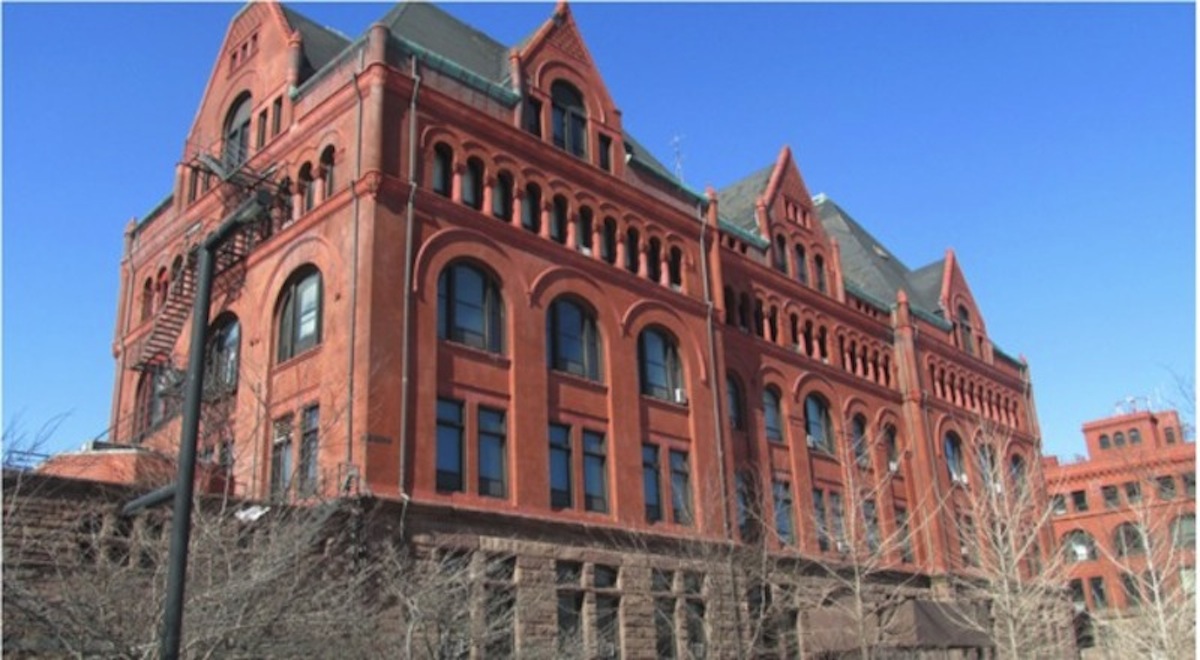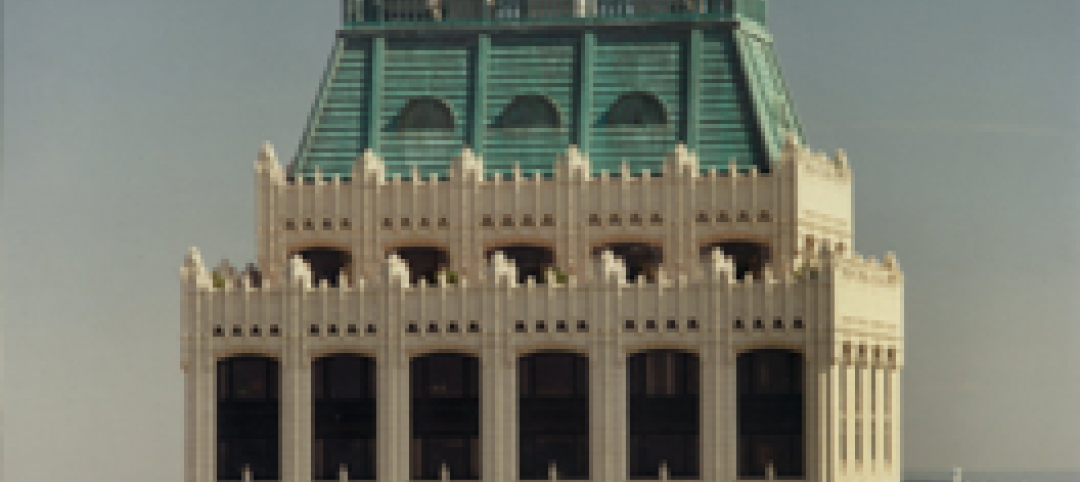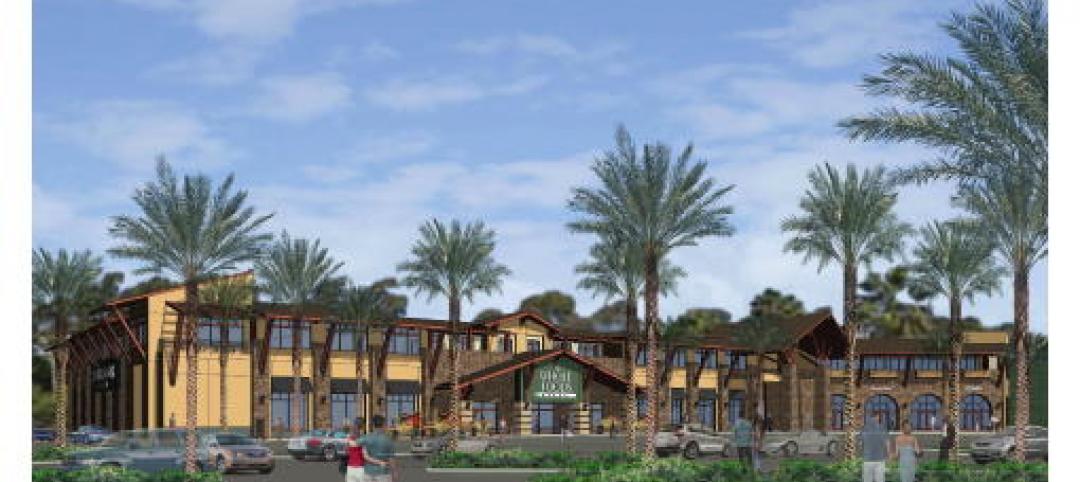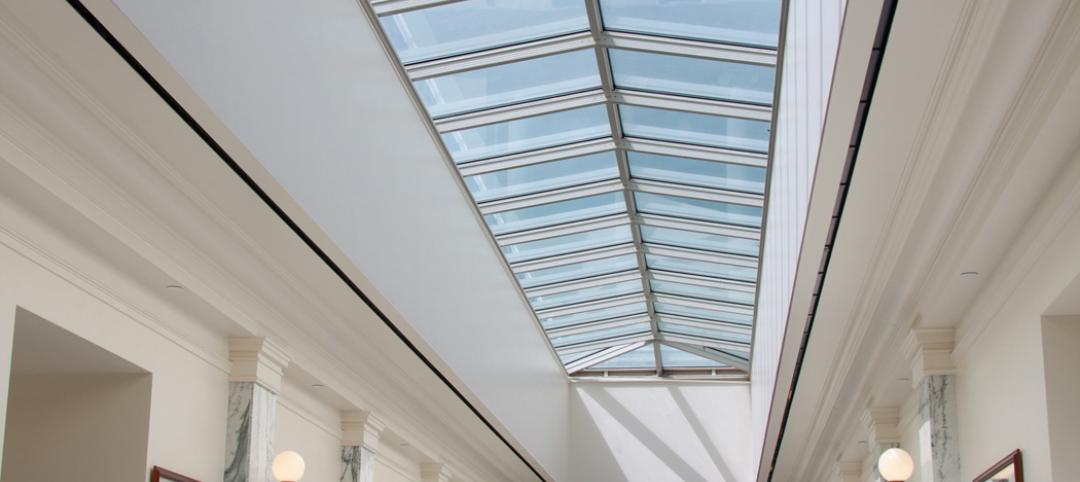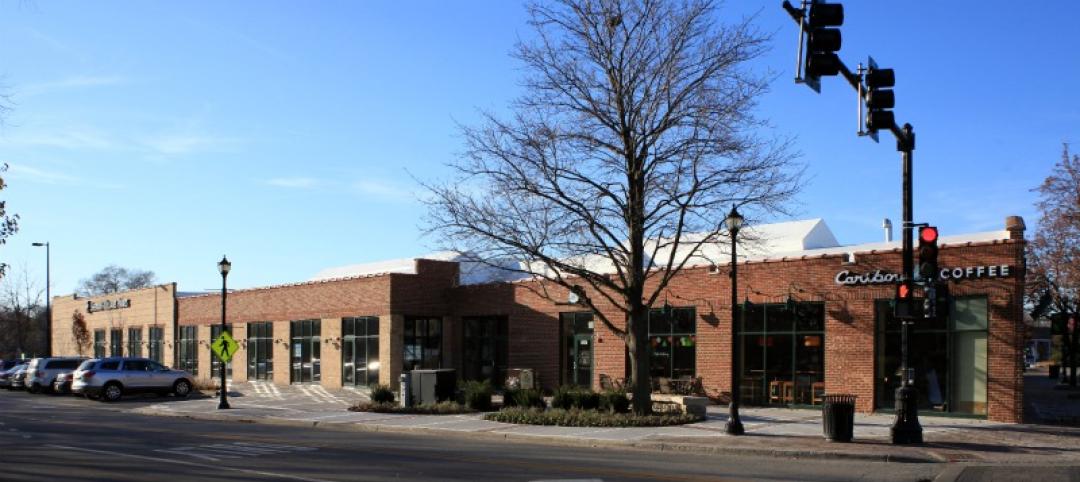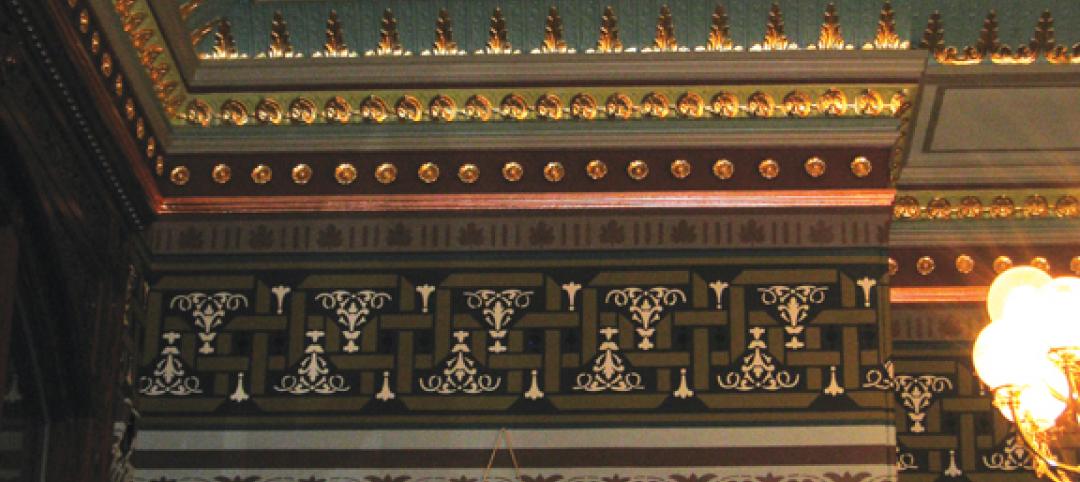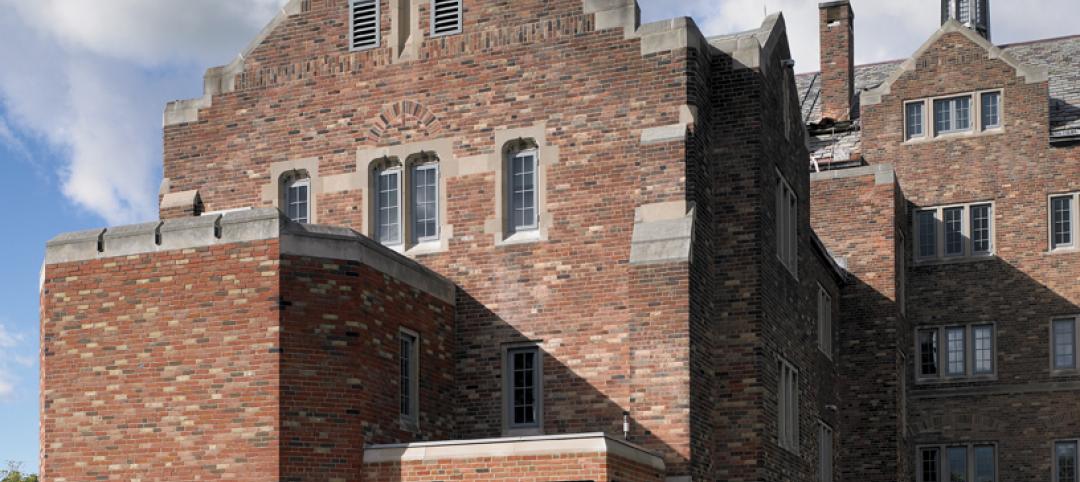Each year, Preservation Chicago publishes a list of the city buildings that are at the highest risk of being lost to demolition or decay. According to DNA Info, the organization unveiled its list on the 178th anniversary of Chicago's incorporation as a city.
"These are irreplaceable buildings that define our neighborhoods," said Ward Miller, Executive Director of Preservation Chicago.
The buildings named on the list are:
- The South Side Masonic Temple: Located at 6400 S. Green Street, the Masonic temple was built in 1921. Throughout its years, it served as a popular destination for fraternal meetings and community events in Englewood. The building features Egyptian, Moorish, and Art Deco influences.
- The Agudas Achim North Shore Synagogue: "The last great Chicago synagogue" is located at 5029 N. Kenmore Avenue and was built in 1922. It boasts Romanesque Revival, Art Deco, and Spanish influences. It's currently listed for sale and has worried Preservation Chicago that it may be demolished by developers.
- Clarendon Park Community Center: Uptown's local community center was built in 1916 for beachgoers. It sits at 4501 N. Clarendon Street and has fallen victim to water filtration and other building code issues.
- A. Finkl & Sons: The Lincoln Park steel plant is up for a major redevelopment, although Preservation Chicago is concerned the renovations may not include the historic buildings that are already standing on the riverfront.
- Illinois Institute of Technology: The Main Building at 3300 S. Federal Street was built in 1893 with funds from Chicago meatpacking baron Philip Armour. While the higher education institution has restored many other buildings designed by Ludwig Mies van der Rohe, this one has not and is being offered to developers.
- Pioneer Arcade: Once a 1920s bowling and billiards venue, the arcade at 1535 N. Pulaski Road has been empty since the mid-2000s. The building's facade is known as one of the city's best examples of 1920s Spanish colonial revival style and was designed by Jens Jensen. It's neighbor, the New Apollo Theater, also made Preservation Chicago's list.
- Neon signs: Located throughout the city, there are many old-school neon signs that bring back memories of how businesses approached advertising from the 1930s to the 1960s.
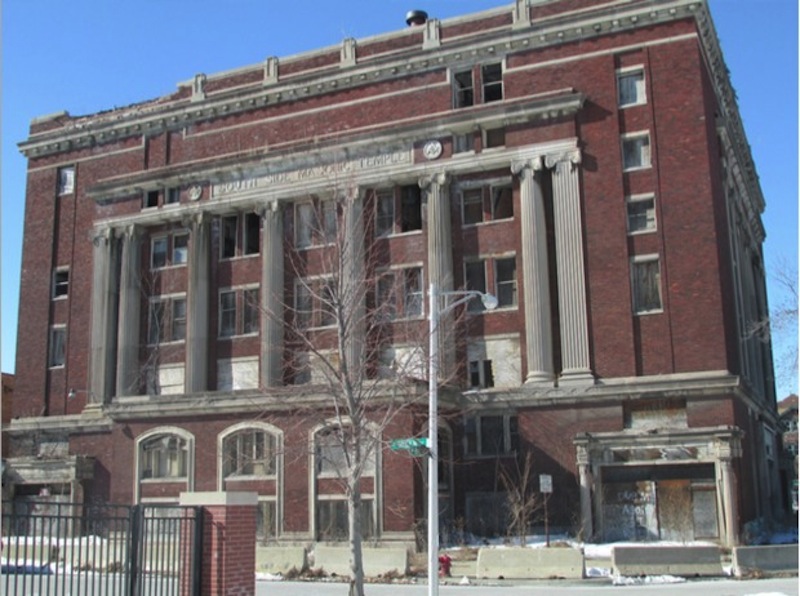 Englewood's South Side Masonic Temple
Englewood's South Side Masonic Temple
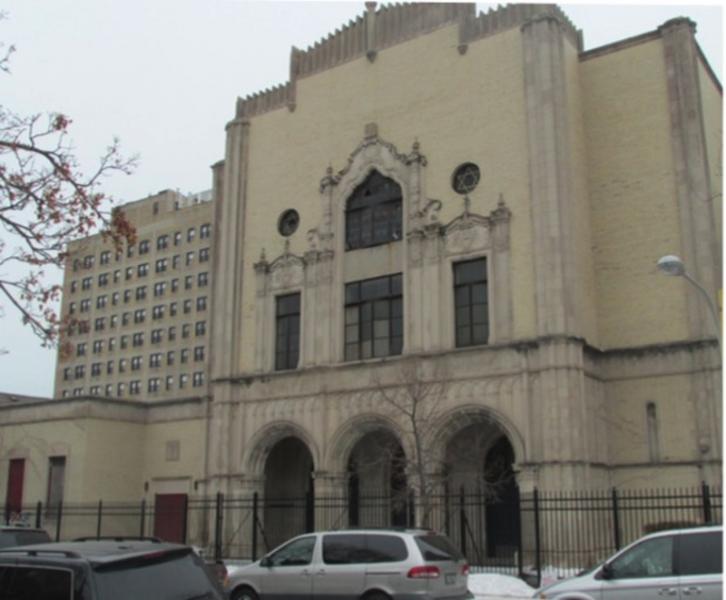 The Agudas Achim North Shore Synagogue on Kenmore Avenue
The Agudas Achim North Shore Synagogue on Kenmore Avenue
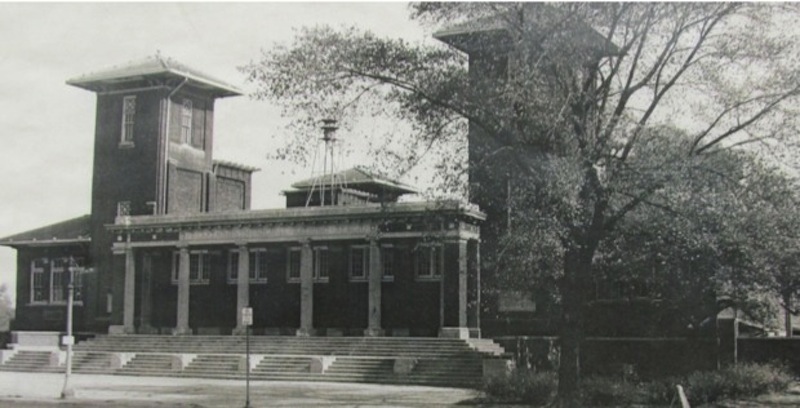 Clarendon Park Community Center in Uptown
Clarendon Park Community Center in Uptown
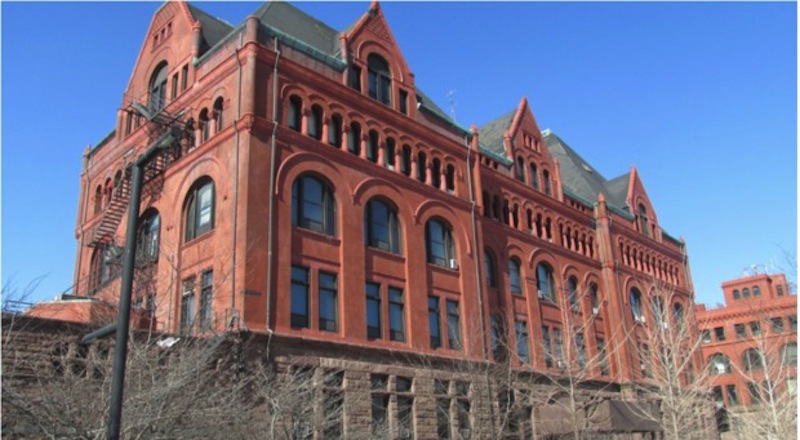 Illinois Institute of Technology
Illinois Institute of Technology
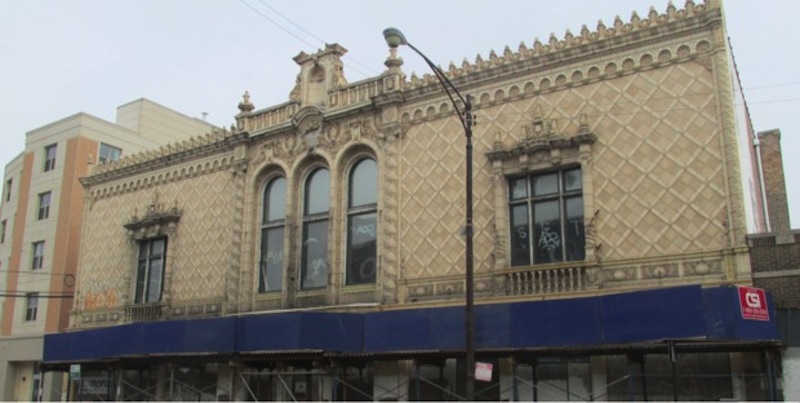 Pioneer Arcade at 1535 N. Pulaski Road
Pioneer Arcade at 1535 N. Pulaski Road
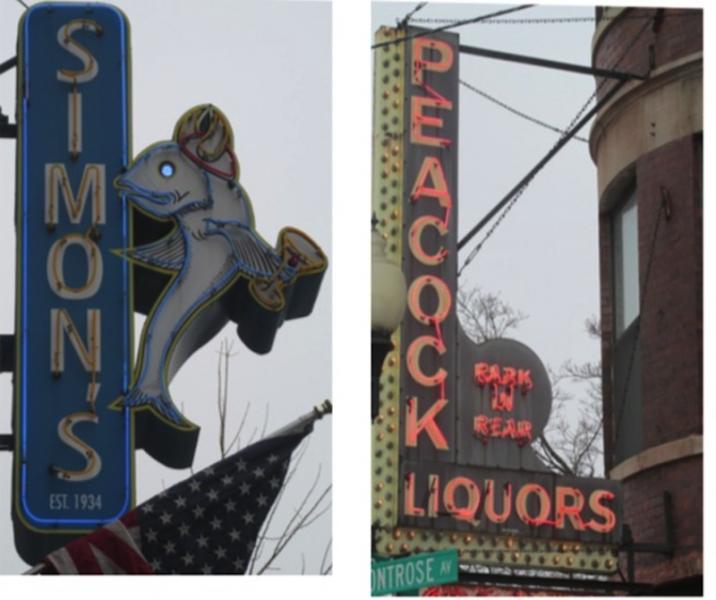 Some of Chicago's neon signs
Some of Chicago's neon signs
Related Stories
| Jan 16, 2012
Mid-Continent Tower wins 25 Year Award from AIA Eastern Oklahoma
Designed by Dewberry, iconic tower defines Tulsa’s skyline.
| Jan 15, 2012
Hollister Construction Services oversees interior office fit-out for Harding Loevner
The work includes constructing open space areas, new conference, trading and training rooms, along with multiple kitchenettes.
| Jan 15, 2012
Smith Consulting Architects designs Flower Hill Promenade expansion in Del Mar, Calif.
The $22 million expansion includes a 75,000-square-foot, two-story retail/office building and a 397-car parking structure, along with parking and circulation improvements and new landscaping throughout.
| Jan 12, 2012
CSHQA receives AIA Northwest & Pacific Region Merit Award for Idaho State Capitol restoration
After a century of service, use, and countless modifications which eroded the historical character of the building and grounds, the restoration brought the 200,000-sf building back to its former grandeur by restoring historical elements, preserving existing materials, and rehabilitating spaces for contemporary uses.
| Jan 6, 2012
Summit Design+Build completes Park Place in Illinois
Summit was responsible for the complete gut and renovation of the former auto repair shop which required the partial demolition of the existing building, while maintaining the integrity of the original 100 year-old structure, and significant re-grading and landscaping of the site.
| Jan 4, 2012
Shawmut Design & Construction awarded dorm renovations at Brown University
Construction is scheduled to begin in June 2012, and will be completed by December 2012.
| Jan 3, 2012
The Value of Historic Paint Investigations
An expert conservator provides a three-step approach to determining a historic building’s “period of significance”—and how to restore its painted surfaces to the correct patterns and colors.
| Jan 3, 2012
28th Annual Reconstruction Awards: Bringing Hope to Cancer Patients
A gothic-style structure is reconstructed into comfortable, modern patient residence facility for the American Cancer Society.
| Jan 3, 2012
Rental Renaissance, The Rebirth of the Apartment Market
Across much of the U.S., apartment rents are rising, vacancy rates are falling. In just about every major urban area, new multifamily rental projects and major renovations are coming online. It may be too soon to pronounce the rental market fully recovered, but the trend is promising.


